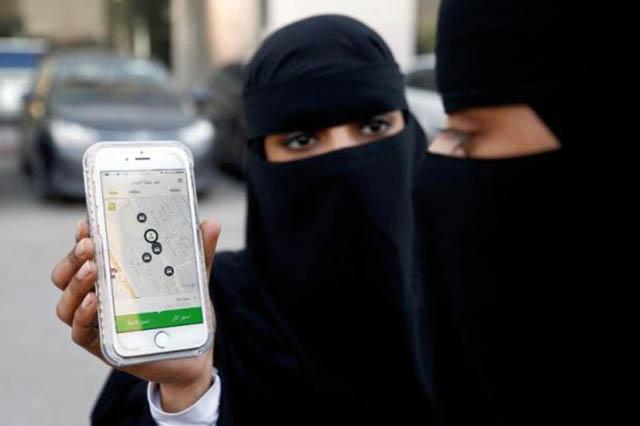You are here
Saudi jobseekers move into Uber gear for extra cash
By AFP - Feb 25,2020 - Last updated at Feb 25,2020

Saudi driver Hussein gets into his car as he starts his day working for Uber, in the capital Riyadh, on Thursday (AFP photo)
RIYADH — Burdened by a bank loan, Ibrahim Ahmed searched for years for a second job before opting for something once seen as menial in oil-rich Saudi Arabia — driving for a ride-hailing app.
Such blue-collar occupations have largely been the preserve of low-income foreign workers in the formerly tax-free petrostate, which long offered its citizens cradle-to-grave welfare.
But Saudis are increasingly taking on what are widely seen as low status jobs in an age of dipping oil prices, as the government trims subsidies amid sluggish economic growth and high unemployment.
Like tens of thousands of Saudis looking to make extra money, 31 year-old Ahmed turned to the global giant Uber, whose drivers in the conservative kingdom had always been predominantly foreign workers.
For the father of three, a salary of 8,000 riyals ($2,133) as an employee at a private company in Riyadh was not enough to support his family and cover a monthly housing loan of 4,000 riyals.
“I finish my job at 2 o’clock in the afternoon, and this is what made it difficult to find a second job,” said Ahmed, clad in a white traditional thobe.
“My income after paying the monthly loan would be so limited, and we went through four years of this drought.”
In 2017, Ahmed sold his car to put a down payment on a new vehicle and enrolled with Uber.
The company’s spokesman says it is available in 20 cities in the kingdom and that more than 200,000 Saudis have driven for the app-based business since it launched in 2014.
“I work for seven hours a day, five days a week, and make an average of 6,000 riyals per month from Uber,” said Ahmed, adding the second job had helped ease his financial burden.
‘Flexible economic opportunity’
Nearly two-thirds of all Saudis are employed by the government in secure and often undemanding white-collar jobs.
But as the public sector wage bill balloons, the kingdom — pushing reforms for a post-oil era — is seeking to wean citizens off government largesse.
Cultural attitudes to work are slowly changing in a country where 40 per cent of Saudis are aged between 20 and 40, with a new crop of citizens working in food trucks and gas stations for the first time.
Often these are second jobs to augment their incomes as high costs of living push many into debt.
“A large number of Saudis have joined Uber for the part-time, flexible economic opportunity it provides,” a company spokesman said.
Uber, which launched in the kingdom in 2014, acquired Dubai-based Careem in 2019 for $3.1 billion.
Both Uber and Careem have hired women since the kingdom lifted its ban on female motorists in 2018.
“I have paid off a third of [my wedding and car] loans thanks to Uber,” said Khaled, a 27 year-old newly-wed.
“I work 10 hours a day in addition to my other job to quickly settle my two loans.”
For years, the kingdom has been struggling to pursue “Saudisation” — a programme to get firms to employ more citizens.
Unemployment in Saudi Arabia for the third quarter of 2019 stood at 12 per cent, a marginal improvement from 12.7 per cent in 2018, according to official figures.
“Young Saudis are accepting jobs they previously would not have accepted,” Abdullah Al Maghlouth, a member of the Saudi Economic Association, told AFP.
“The presence of foreign companies, such as Uber and Careem, give young Saudis the opportunity to pursue these jobs... and increase their income,” he added.
There appears to be somewhat more prestige in working for a ride-hailing app than driving an ordinary taxi, largely reserved for foreign workers.
But there remains a stigma in the conservative kingdom attached to blue-collar jobs in general.
Turki Al Oneizi says he does not care about dirty looks.
“With Uber, I’m my own boss,” the 33 year-old said.
“There is no shame as long as I’m doing something that does not violate my morals and ethics. This is something that improves my social and economic situation.”
Related Articles
RIYADH — Saudi Arabia’s Kingdom Holding Co.
AMMAN — The Land Transport Regulatory Commission on Thursday announced a quota limiting the number of drivers for each ride-hailing app to 5
Bayt.com and Mercy Corps Amman are joining efforts to provide match-making tool for blue-collar jobs in Jordan.

















